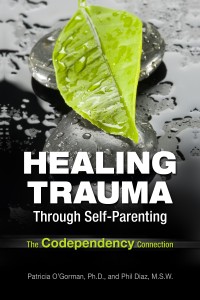

What does joy taste like to you? What does it smell like? If joy smells like fresh flowers, why not buy yourself flowers as often as you can? If it tastes like rice pudding and jam, try keeping a few tins in the cupboard for when you are feeling fragile. If joy were a sound, what would it be? Why do you think you chose that sound? To remain in your body, return to your senses over and over.
Healing trauma full#
Do you feel warm? Light? Full of hope? Safe? What physical sensations are present? If you drew a sun, could it be because happiness feels warm? What is the significance of the flowers, the field, the sky? Is joy brightly coloured to you? Feel the soft breeze, smell the flowers, hear the birds chirping away contentedly in the background.įrom that safe space inside your vision of happiness, try to describe how you feel inside your body. Let’s say you have drawn a yellow sun shining over a field of endless bright flowers. If you struggle to define it in words at first, it can be helpful to use colours- what colour is happiness to you? Can you draw it? Could you draw your ‘happy place?’ĭon’t worry about the drawing being “perfect” or even good- the whole point of the journal is that it is for your eyes only. It can be both useful and enlightening to define what each feeling means to us, what we experience inside our bodies and minds when we are feeling a certain way.

We can discover our passions and use this knowledge to forge a fulfilling career or find a way of life that allows us to experience more joy.Īs survivors we often struggle to identify feelings. If we spend some time reflecting on the feeling of joy and thinking about what brings us joy, we can discover ways to rebalance our emotions during times of distress. What brings me joy? When do I feel happiest? What does happiness feel like for me?ĭepression can suck all the joy out of our lives. How do the people who love you describe your positive qualities? Don’t be afraid to ask- the people you are closest to have a much clearer view than you- especially when the inner critic is raging.Ģ. Perhaps you can cook well, play an instrument, speak more than one language?Īre you a loving parent, a good friend or partner? In our dark moments it can be healing to look over such a list, as a reminder of reality when we are perhaps disconnected from it. Use your journal to make a list of your positive qualities -and trust me, there are many!


It is possible to silence this inner critic, and one way of doing this is by challenging our negative assumptions about ourselves. Survivors of traumatic events often have a voracious ‘inner critic’- a nagging voice constantly reminding us of everything ‘wrong’ with us, commenting on our mistakes and failures in life, telling us we should have done better. When we are feeling low, it can be hard to think of things we love about ourselves. What do I like about myself? What are my best qualities? Here are 5 journal prompts to help you get started. Of course you can just write freely, but prompts can give you a place to begin which helps when you are staring at a blank page. Journal prompts are simply short statements or questions that allow us a starting point. It can be difficult to know where to begin- which is where prompts come in. Just let the words flow and you will be surprised at how much calmer you feel after getting it out- and how much you can learn about yourself. Your journal is private– you can write any and everything in there. Journaling can follow a ‘stream of consciousness’ approach, whereby we allow the flow of the words to take over- this helps to get into the subconscious where a lot of our trauma is stored. It can feel like a huge release to get them out onto paper- by writing them down we allow them to exist outside of the mind. Journaling is really helpful for healing because it is a way to explore your thoughts and feelings.


 0 kommentar(er)
0 kommentar(er)
